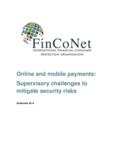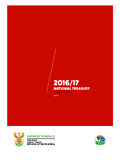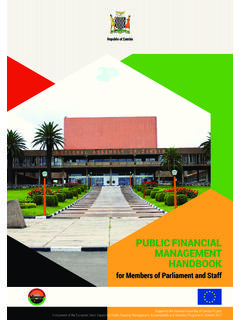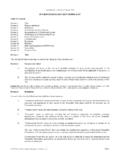Transcription of CONTENTS Welcome to the FinCoNet Newsletter
1 1 CONTENTS Welcome 1 In Focus 2 Current Issues Forum 3 Consumer warning: the risks of initial coin offerings 3 IAIS application guidance for product oversight in inclusive insurance 4 Bank of Russia financial literacy website 5 New market conduct regulatory framework for the Peruvian financial system 7 Central Bank of Ireland proposes new rules on how financial intermediaries can be paid 8 Issue 1 | January 2018 201420140142014 Welcome to the FinCoNet Newsletter Happy New Year and Welcome to the first 2018 edition of the FinCoNet Newsletter ! This year, FinCoNet will commence new projects to look at issues relating to financial product governance and culture, and financial advertising, which are important topics for supervisory authorities charged with the protection of financial consumers.
2 This is in addition to ongoing work on issues relating to high-cost lending and risk-based supervision in a digital age. As we move into 2018, FinCoNet will also continue its efforts to expand the membership of FinCoNet , and encourages any interested parties to contact the Secretariat for further information on how FinCoNet Membership can benefit your authority. 2 In Focus _____ FinCoNet Treasurer profile Mr. Fernando Tejada Since July 2013, Fernando Tejada has been the Director of the Market Conduct and Claims Department at Banco de Espa a. From the time he joined the Banco de Espa a as an Economist in 1987, he has acquired increasing responsibility and management authority in these positions: Economist, Research and Economics: monetary policy and financial regulation Head, Human Resources Development: recruitment, training and career development Head, International Technical Cooperation: technical assistance and international projects vis- -vis central banks, financial supervisory agencies and international organisations Advisor, DG Operations, Markets and Payment Systems.
3 Cross coordination of the DG duties for central bank operations, payment systems and issuing cash banknotes Head, Claims Service: redress mechanisms and financial education Director, Market Conduct and Claims Department: regulation and supervision of bank conduct, transparency and best practices; oversight of advertising; redress mechanisms; and financial education. Highly experienced in the international arena (inter alia, European Central Bank, International Monetary Fund, World Bank, Inter-American Development Bank, European Banking Authority, OECD, European Commission, Bank for International Settlements, Center for Latin American Monetary Studies), he currently participates in the following organisations: Governing Council, FinCoNet ; G20 Technical Committee, International Network on Financial Education, OECD; CEMLA Financial Literacy and Inclusion Committee.
4 And Latin American and the Caribbean (LAC) Regional Network of the OECD International Network on Financial Education. Since 2010, he has been an active member of the Permanent Financial Literacy Group within the Spanish Financial Education Plan. He holds a degree in Economics and Business Administration (Universidad Aut noma de Madrid, June 1982), and has successfully completed the following programmes: Management Programme (IESE, June 2006) and Leadership & Change Management Programme (IESE, June 2014). 3 Current Issues Forum _____ Consumer warning: the risks of initial coin offerings Contributor: Matthias Aust, BaFin, Germany The acquisition of cryptocurrency coins also referred to as tokens, depending on their form as part of so-called "initial coin offerings" (ICOs), may present substantial risks for investors.
5 ICOs are a highly speculative form of investment. Investors should therefore be prepared for the possibility of losing their investment completely. As is the case with most new trends, the high level of public interest in ICOs is also attracting fraudsters. The term "initial coin offering" stems from the term "initial public offering" (IPO) to illustrate, a flotation on a stock exchange. The apparent similarity between the terms can create the impression that ICOs are comparable to the issuance of shares. This, however, is not the case from either a technical or legal standpoint. Numerous risks Tokens acquired in an ICO often experience significant price fluctuations.
6 In this, there is the risk that there will not be a liquid or other secondary market where investors can sell the tokens at a Typically, projects financed using ICOs are still in their very early and, in most cases, experimental stages. Therefore, their performance and business models have never been tested. Additionally, it is difficult for the investor to verify the descriptions of how the tokens function based on the underlying program code (smart contract) outlined in the accompanying white papers or terms and conditions. The code might also prove vulnerable to attack and manipulation. Furthermore, the information from token providers is often insufficient.
7 In contrast to regulated prospectuses, the white papers and terms and conditions are often insufficient, incomprehensible and even misleading. Due to the lack of legal requirements and transparency rules, consumers are left on their own when it comes to verifying the identity, reputability and credit standing of the provider, and understanding and assessing the investment on offer. Moreover, it cannot be guaranteed that personal data will be protected in accordance with German standards. The systemic vulnerability of ICOs to fraud, money laundering and terrorist financing increases the risk of investors losing their investments.
8 Investors should also keep in mind that authorities are expected to take necessary measures against operators or other persons or enterprises that are involved in such illegal dealings. Notes for consumers Before consumers decide to participate in an ICO, they should make certain that they fully understand the benefits and risks of the project or investment. They should also ask the issuer as many questions as necessary, and verify the issuer's information from independent sources. Investors should likewise ensure that the characteristics of the project or investment match both their investment needs and their appetite for risk.
9 BaFin has published an expert article on ICOs and their risks. Further notes on blockchain technology and virtual currencies 4 are provided under the menu item, Company start-ups and fintech companies. In addition, the websites of many other national supervisory authorities and that of the European Securities and Markets Authority (ESMA) also provide information and warnings about this topic. _____ IAIS application guidance for product oversight in inclusive insurance Contributor: Peter van den Broeke, IAIS On 23 November 2017, the International Association of Insurance Supervisors adopted the Application Paper on Product Oversight in Inclusive Insurance.
10 Product oversight by insurance supervisors aims to ensure that insurers treat customers fairly and that their other business activities do not conflict with this obligation. The paper provides guidance on the application of product oversight in markets where a significant part of the population lacks access to suitable insurance products (also known as inclusive insurance markets). Background This paper has been developed to guide and inform supervisors, policymakers and market participants on ways to implement and apply the IAIS Insurance Core Principles (ICPs) relevant to product oversight in inclusive insurance.











